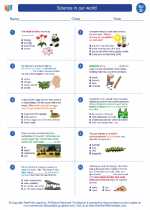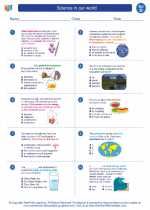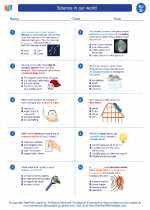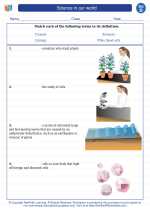Chromosomes
Chromosomes are thread-like structures located inside the nucleus of animal and plant cells. They are made of protein and a single molecule of deoxyribonucleic acid (DNA). DNA contains the genetic instructions for the development, functioning, growth, and reproduction of all known organisms and many viruses.
Structure of Chromosomes
Chromosomes are made up of two chromatids, which are joined at a point called the centromere. Each chromatid contains a single molecule of DNA. The DNA is tightly coiled and organized with proteins, forming a structure that can be seen under a microscope.
Function of Chromosomes
The main function of chromosomes is to carry the genetic information necessary for cell growth, division, and function. During cell division, the chromosomes are replicated and then separated into two new cells. This process ensures that each new cell receives a complete set of genetic information.
Study Guide
- What is the structure of a chromosome? Explain the role of chromatids and the centromere.
- Describe the composition of chromosomes. What are they made of?
- What is the function of chromosomes in a cell?
- How are chromosomes involved in the process of cell division?
- What is the role of DNA in chromosomes?
Understanding the structure and function of chromosomes is essential in understanding genetics and cell biology. Knowing how chromosomes work can help us understand how traits are passed from parents to offspring and how genetic disorders can occur.
.◂Science Worksheets and Study Guides Fourth Grade. Science in our world

 Worksheet/Answer key
Worksheet/Answer key
 Worksheet/Answer key
Worksheet/Answer key
 Worksheet/Answer key
Worksheet/Answer key
 Vocabulary/Answer key
Vocabulary/Answer key
